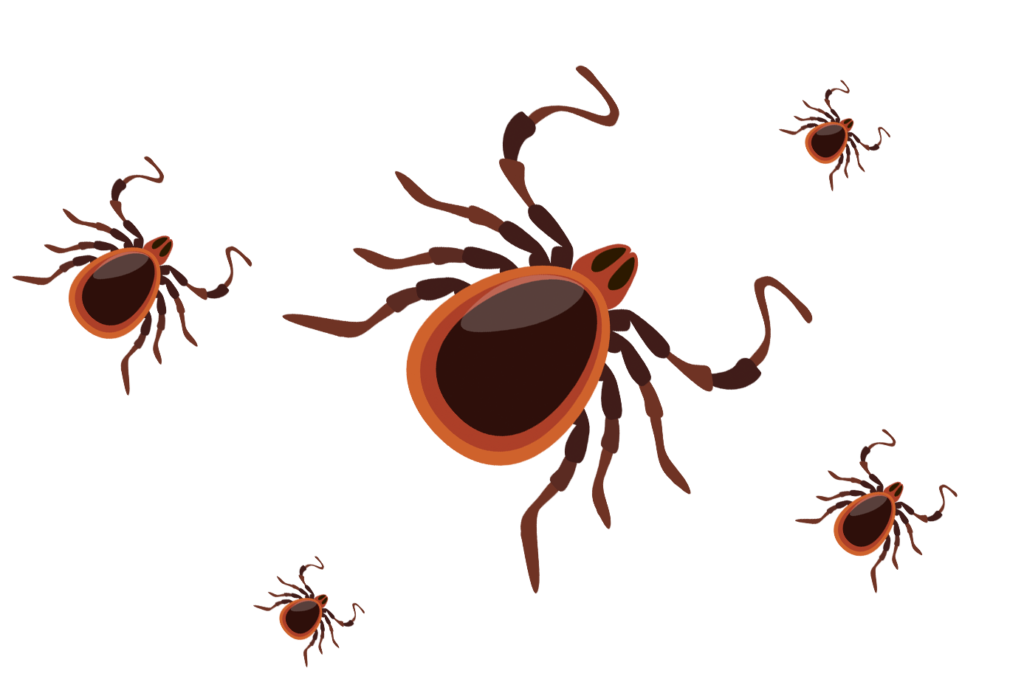Tick & Chigger Control
Protect Your Family, Pets & Yard from Outdoor Biters
Eco-friendly treatments that keep your yard safe.
For the Fastest Response Text Us – 910-709-5214
and let us know how we can help!

Protect Your Yard
the Natural Way
Ticks and Chiggers aren’t just annoying — they can carry serious health risks like Lyme disease and cause intense skin irritation. Our treatments reduce populations, break breeding cycles, and keep your yard a safe space to relax and play—without harming pollinators, pets, or the planet.
- Yard Inspection – We assess your lawn, wooded areas, and landscaping to identify risk zones
- Recommendations – Mowing, mulching, and landscaping advice to reduce habitat naturally
- Treatments that won’t harm your family or beneficial insects
- Local experts who understand tick and chigger patterns in the Research Triangle
Book a Tick & Chigger Solution
How We Get Rid of Ticks & Chiggers
Step 1: Identify Problem Areas
We inspect your property to find where ticks and chigger are likely hiding — including shaded areas, leaf piles, wood edges, and overgrown grass. We assess the type of tick or chigger you may be dealing with.
Step 2: Apply Eco-Safe Treatment
We treat key zones using a backpack blower with essential oil based products that penetrate foliage and grass — effectively knocking down pests while staying safe for pets and kids.
Step 3: Reduce Future Risk
We’ll show you how to keep your yard trimmed, control moisture, and create natural barriers to prevent ticks and chiggers from coming back.
Eco Man Ticks and Chiggers Removal Testimonials
Tick & Chigger Control – Bite-Free Living Starts Here
Ticks and chiggers might be tiny and you don’t think about them, but they pose major problems in North Carolina’s warm and humid climate. From painful, itchy bites to serious rashes, and health concerns like Lyme disease and Rocky Mountain spotted fever, these pests are no joke and are to be taken seriously. At Eco Man Pest Solutions, we offer eco-friendly, family-safe tick and chigger control for homes and properties throughout our service areas.
What Our Tick and Chigger Services Include
- Yard Inspection – We assess your lawn, wooded areas, and landscaping to identify risk zones.
- Targeted Essential Oil based Treatment – Pet- and kid-safe applications to shaded areas, grass, brush lines, and under decks.
- Habitat Recommendations – Mowing, mulching, and landscaping advice to reduce habitat naturally.
- Seasonal Service Options – Monthly or bi-monthly plans during tick-heavy months (spring to fall).
- Bundle Options – Add-on to mosquito or general outdoor pest programs for total yard protection.
Great for Home With
- Dogs, cats, and outdoor pets
- Kids who play in the yard or garden
- Properties near woods or water
- Landscaping that includes mulch beds, tall grass, or brush
Get Rid of Ticks & Jiggers Helpful DIY, Tips & Tricks
Blow Pests Away
Frequently Asked Questions About Ticks & Jigger Control
When should I start treating for ticks and chiggers in the Triangle?
We recommend starting in early spring (March-April) before peak breeding season. North Carolina’s warm weather allows ticks and chiggers to stay active into late fall.
Do you treat for ticks too?
Absolutely. Our treatments target shaded areas, tall grasses, and other tick-prone zones in your yard.
Do you service rural areas?
Absolutely. We regularly treat wooded and rural homes throughout our service area, including farms, cabins, and acreage properties.
How do I know if ticks or chiggers are in my yard?
You might notice itchy bites, especially around ankles or waistlines, or see ticks on clothing or pets after being outside. We offer inspections to confirm presence and risk level.
Can chiggers really live in trees?
Nope! That’s a common myth. Chiggers live low to the ground, in grasses, weeds, mulch beds, and shaded brush. That’s why mowing and keeping grass short is a priority.
6. How often should tick and chigger treatments be applied?
We recommend every 3–4 weeks during the season for optimal results, especially if you have pets or children who use the yard frequently.
